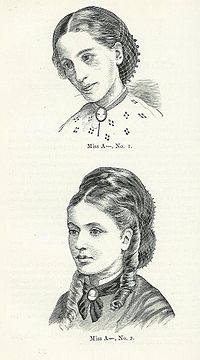
Photo from wikipedia
In this theoretical study, certain characteristics of orthorexia nervosa (ON) are assessed. As a type of disordered eating, ON is characterized as pathological healthy eating obsession. By reviewing previous literature,… Click to show full abstract
In this theoretical study, certain characteristics of orthorexia nervosa (ON) are assessed. As a type of disordered eating, ON is characterized as pathological healthy eating obsession. By reviewing previous literature, four orthorexic traits are investigated whether they meet the conditions of becoming adaptive drivers of human behavior. First, learned neophobia to avoid “improper” foods is considered as an advantageous strategy, secondly, ON being a cohesive force based on common beliefs and its religious, virtuous characteristics is adaptive as well. The third orthorexic trait in the form of physiological consequences (refeeding syndrome, malnutrition) suggests that ON is rather a nonadaptive health behavior, along with the fourth characteristic, namely, the psychological disturbances that health anxiety may induce. To conclude, ON can be viewed as an inherently useful tool to protect one’s health by diet, but also as a phenomenon which has extreme forms causing health problems. The exact etiologies are unexplored, therefore, the psychological, social and cultural drivers of extreme healthy eating are important to understand for future improvements. In order to establish the criteria and therapeutic guidelines, it would be beneficial to collect narrative data and experiences from individuals with orthorexic tendencies.
Journal Title: Psychological Thought
Year Published: 2019
Link to full text (if available)
Share on Social Media: Sign Up to like & get
recommendations!